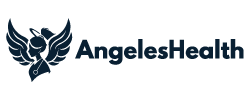A new and disturbing take on the good old 80-20 rule: in a recent survey of physicians, 80% said their knowledge of herbal medicines is “much poorer than their knowledge of prescribed medicines….
….but only 20% said that they would bother to seek further information if/when a patient presented them with an unfamiliar herbal medication.
Most physicians don’t know much more about complementary and alternative medicine than their patients do, according to a new survey conducted online among health care professionals and reported in MedPage Today.
The Drug and Therapeutic Bulletin subscription list survey findings revealed almost half of respondents rated their own knowledge about herbal medicines as “quite or “very poor, having received little if any alternative medicine training while in medical school.
More than half admitted they rarely or never ask patients if they are taking herbal medicines. Add to this the fact findings from a different general population survey revealed that patients report that they expect their doctor’s to ask, and you have a recipe for failed communications that can lead to diagnosis and treatment failures.
Since few doctors receive any training in alternative medicine while in medical school, the failure to ask patients about alternative or complementary therapies they are taking may be because they don’t know enough to respond, rather than a lack of interest in or belief in herbal treatments.
Google it!
In at least one regard, doctors share the same challenge as patients: not knowing where to find a reliable source of information on alternative medicine practices, or how to assess the credibility of the information that is found. This despite the fact that patients appear to believe the opposite:
“Our survey showed that patients thought doctors would be a good source of information” British Medicines and Healthcare products Regulatory Agency
And while doctors surveyed said they would likely turn to the internet to learn about herbal medicine, chair of the European Herbal Practitioners Association is concerned, Michael McIntyre has called this a terrible idea,
“Unless you know what site you’re on, you could get terrible information, wrong information”
A leader of the Department of Health Herbal Medicine Regulatory Working Group speculates that the lack of information on herbal medicines has to do with doctor perceptions that learning about alternative therapies is a ‘step backward’.
“There’s the feeling that we got away from that because we found out what the active constituents are . . . this is science.”
Certainly there is no agreement yet on the efficacy of alternative treatments, considering that in Drug and Therapeutic Bulletin survey,
- 75% of physicians reported that they thought herbal medicines were helpful in some circumstances,
- while 75% ALSO reported that the general public has “misplaced faith in these compounds”
Dr. Ariel Perez, a distinguished graduate of the Institute for Functional Medicine and Director of the Angeles Functional Oncology Center for Integrative Cancer Treatment, says he is not surprised by these findings.
“It’s not that modern medicine is wrong, it is merely limited in it’s ability to prevent, manage and control, focused as it is on the surgical solution to eradicate and destroy,” Dr. Perez shares in this video.
Functional medicine, he says, is the future of medicine, integrating the best of what is available in both the traditional western medical approach to Oncological patients and natural, holistic fields.
Treatment plans are engineered to put the patient in the center of a team of professional partners in the medical fields of Functional Medicine, Clinical Nutrition, Biological Dentistry, Internal Medicine, and Spiritual Psychology…an approach that draws on the knowledge of a team vs. what any one individual doctor does or doesn’t know about alternatives.
Integrative Medicine in North America: Getting Stronger?
Though doctors report very little training and resources regarding alternative medicine, this appears to be set to change as leading lights in western medicine such as Duke and Mayo Clinic are transforming their programs in response to patient demand, to include integrative care.
On its website, Duke Integrative Medicine invites patients to experience its visionary integrative medicine program – health care that combines the best of western scientific medicine combining seamlessly with caring for the ‘whole person’ by a team of professionals with a holistic approach to treatment of patients’ mind, body, spirit and community.
Mayo Clinic features on its website a Complementary and Integrative Medicine program in direct response to increased patient interest in “wellness-promoting treatments that are not typically part of conventional medical care” including herbal medicine, massage therapy and meditation. Mayo even offers patients a Book of Alternative Medicine is, a resource for understanding safe and effective therapies from the world of complementary and alternative medicine.





